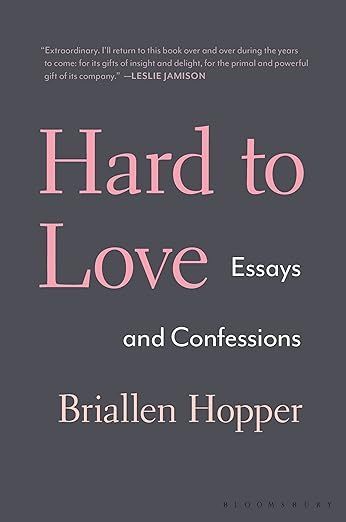Eight years ago, if you had asked Briallen Hopper what she did, or who she was, she wouldn’t have told you she was a writer. She might have mentioned the shrinking academic job market she had waded through to no avail, or getting by on a short-term teaching contract. The rent she couldn’t afford without a roommate—that might have come up, too. It was a time, Hopper told me a few weeks ago, when she identified more as “a failed academic” than as a writer.
Still, she was writing. And, removed from the pressures of the academy, the practice of writing itself had shifted, for Hopper, from “professional obligation to something that felt much more expressive and exploratory.” She was writing what she felt like writing, not what she thought would further her scholarly career.
And so, naturally, one of the essays she wrote during this period ended up doing just that. After LARB published “On Spinsters,” the piece began to make the rounds online. Soon followed a cavalcade of blessings. First, Hopper received (and continues to receive) kind messages from readers, some of whom were famous (Rebecca Traister! Elif Batuman!) and one of whom was legendary literary agent Rob McQuilkin, who represents writers such as Ada Limón and Jesmyn Ward. McQuilkin, whose initial Facebook message Hopper almost missed—“I was getting a lot of messages at that point,” she explained—helped her secure a book deal at Bloomsbury, which became her debut essay collection Hard to Love, which in turn qualified her to apply for a job at Queens College, CUNY. Today, she is an associate professor there and assistant director of the MFA program. “I am maybe simultaneously a cautionary tale and a sign not to give up,” Hopper said.
Why did “On Spinsters” go viral? For a start, it’s kind of a pan, and who (besides the author being lambasted) doesn’t love a good pan, or at least something that cuts through all the vague positivities? Evisceration begets virality in our attention economy, certainly—except Hopper does not eviscerate. In fact, she’s fair, with a healthy dose of biting humor. The essay’s opening sentence is charitable: “I expected to like Kate Bolick’s recent book Spinster.” Only later, when Hopper writes about Bolick’s surprising choice to organize a narrative about spinsterhood around the biographies of five (largely red-headed) women writers who all got married, does she quip, “I would have enjoyed Spinster a lot more if it had been titled Red-Headed Writers or Dating and Divorce.” But Hopper levels this critique because “Bolick’s small and not especially spinster-based archive radically limits the potential of her book, both culturally and politically.” Which is to say: Hopper’s is a review undergirded not by spite, but by an abiding sense of care and generosity.
“On Spinsters” is only “kind of” a pan because it’s more apt to call it a corrective. Hopper doesn’t just gesture to Bolick’s blind spots; she fills them in. She supplies nuance where Bolick has left behind “anachronistic absolutes.” She makes room for the spinsters who are “weird, difficult, dissonant, queer.” And she shares the mic with other spinsters, quoting and linking to their words, spinning, in consequence, an entire centuries-spanning syllabus of spinster literature.
Toward the end of the essay, Hopper writes, “I don’t know what the future holds for me and the rest of my spinster sisterhood,” and it’s heartening to read now, with the knowledge of all that the future did hold for Hopper—a dramatic irony where triumph, not tragedy, awaits our spinster heroine.
The essay, the agent, the book, the job. And then, in the most ironic twist: the fan who wrote to Hopper about Hard to Love—in which “On Spinsters” was re-published—and who is currently her boyfriend of three-and-a-half years. Before they started dating, she had been single for 15. The moral, Hopper told me, laughing, is that “you have to be careful what you write.”
“But,” she added, “I still stand by what I wrote. I still believe in more expansive definitions of love and community.”
LARB Contributor
Jared Klegar is a LARB editorial associate. He is from New York, and is currently a student at Stanford University.
Did you know LARB is a reader-supported nonprofit?
LARB publishes daily without a paywall as part of our mission to make rigorous, incisive, and engaging writing on every aspect of literature, culture, and the arts freely accessible to the public. Help us continue this work with your tax-deductible donation today!
